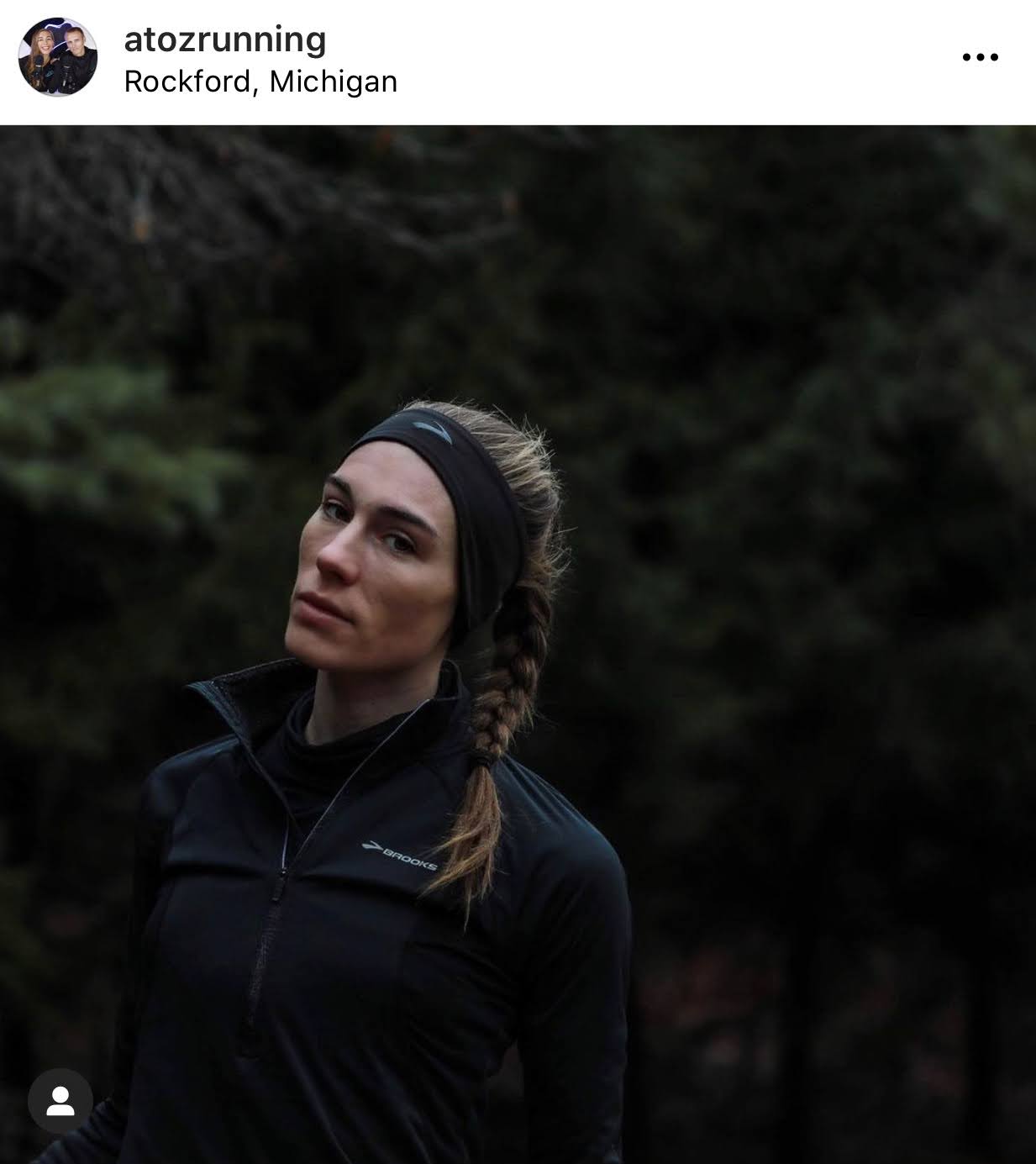8 Ideas to Improve Mood Besides Running
Runners may have powerful handles through exercise to improve mental health, but that doesn’t mean we are immune to mental health issues including mood swings, anxiety, depression, addiction, deficiencies, and sadness. In fact, mental health and substance abuse are far reaching with 40% of Americans struggling with these issues according to research conducted in June of 2020.
In this article, we discuss 8 science-supported mood boosters for maintaining mental and emotional health.
First off, if you are having thoughts of death or suicide reach out and get help. Do it as soon as you can. You are not alone in this struggle. You can call 800-273-8255 to speak with a counselor on the National Suicide Prevention Hotline.
What about running as a mood booster?
Running has positive effects on the mind and can help with depression and anxiety. If you haven’t already listened, we dive into the influence running has on mental health on episode 61 of the A to Z Running Podcast with Carol Seppilu. We talk about the science and research associated with running and mental health as well as hear Carol’s powerful story. Take a listen.
Many of us use running to help us combat our mental health issues, and it can be effective, but it’s important to build a collection of tools to utilize in our work maintaining a life that helps our mental health thrive. It is especially important to have strategies in mind when we are injured or on a break from running.
8 Ideas to Improve Mood Besides Running
VERY IMPORTANT: Having tools in our toolbox to combat depression, sadness, irritation, or anxiety can help aid our movement towards health and wholeness. These suggestions are NOT TREATMENT for depression, anxiety, or other mental health issues, but are meant to help daily movement toward better wellness. Please consult a medical professional for treatment and diagnosis.
On this post on instagram I started getting several great suggestions. Thank you to those of you who reached out to help contribute to this post.
Light therapy (phototherapy)
 Let it shine! Most of us are not getting enough sunshine. You’ve probably heard of light therapy to help, but why and how does it work? Heathline.com states, “Why light therapy is effective is still being studied. One theory is that light naturally triggers the production of serotonin in the brain. Serotonin is the “feel-good” brain chemical. Some experts believe that success with light therapy is due to a placebo effect.” It has also been used to help with sleep therapy.
Let it shine! Most of us are not getting enough sunshine. You’ve probably heard of light therapy to help, but why and how does it work? Heathline.com states, “Why light therapy is effective is still being studied. One theory is that light naturally triggers the production of serotonin in the brain. Serotonin is the “feel-good” brain chemical. Some experts believe that success with light therapy is due to a placebo effect.” It has also been used to help with sleep therapy.
Many of you have asked how it’s going with my happy light (here is the one I bought, affiliate link). I do feel like it’s made a difference, but I am a study of one. I usually try to work on my computer with the light on me a little bit each day.
Mayo Clinic recommends using a light therapy (without UV rays) for 20-30 minutes a day. You should beware if you are sensitive to light and prone to headaches or eye pain. Mayo Clinic also recommends following the manufacturer’s instructions and any doctor’s instructions (if suggested by a doctor). Another great tip from Mayo Clinic is that light therapy is most effective in the morning.
Reading Books
(Thanks @brandontylereast & @nsduf & @nasqaq on the podcast)
Reading puts you in a general state of eudaemonia (well being) which can help settle the anxious mind.
According to Psychology Today, “A relatively unknown mental health intervention is ‘bibliotherapy’ or ‘reading therapy.’ This mainly refers to structured book-reading programs run by clinics, libraries, or schools aimed at promoting recovery in people with mental health difficulties.”
The article by Psychology Today noted that fiction helps with “interpersonal understandings” giving oneself and others more empathy through relating to characters in the book. Autobiography and recovery narratives can help with resilience and also help to strategize with tools that real people have used in their life journey. Finally, the article outlines religious and spiritual texts (like devotionals and other spiritual books) which have been cited to help people recover by helping make a personal connection with God.
*If your depression is great, you may not be able to focus on reading. Please reach out to a professional if this is the case.*
Vitamin D
(Thank you @jkalen10, @just.monica.here, and @pmumbower)
One of the benefits of being a runner is the habitual outdoor absorption of Vitamin D on runs, however many of us do not get enough. In fact, a 2020 study found up to 1 billion people worldwide are vitamin D deficient.
The same study by the NCBI states, “About 50% to 90% of vitamin D is absorbed through the skin via sunlight while the rest comes from the diet. Twenty minutes of sunshine daily with over 40% of skin exposed is required to prevent vitamin D deficiency.” This brings me to a few thoughts:
1) If there is no sun for days on end (I live in Michigan, so this happens), we have to be aware that we may have a deficiency. If you believe this to be the case for you, consult your primary care provider to get your levels checked. They will suggest supplementation if your levels are low.
2) The next thought is that many of us are opting to workout inside whereas during the summer we are getting our outdoor absorption of vitamin D. Even if it may not be ideal to get your run in outside, you may want to consider going for a walk or hike in addition to your workout if the sun is shining.
Music
(Thank you @babiestoboston)
Music has a strong influence on the brain. In fact, Harvard Health Publishing claims that music can help you heal! They say, “Music therapy can calm anxiety, ease pain, and provide a pleasant diversion during chemotherapy or a hospital stay.”
While these results are measured based on the programs created by musical therapists, more general claims are made that music can ease anxiety. In the article, they also indicate that exercising to a playlist can help one stick to a routine.
Gratitude and Prayer
(Thanks @ericmlogan & @caseykilereski)
Focusing on the things we are grateful for is a generally well-known exercise to change our mood and remind us of the good things we have in our lives.
Is gratitude beneficial? Research would suggest that gratitude aids in mental health. According to research published in Psychotherapy Journal, those subjects with “gratitude interventions” reported significant improvements in mental health over the control subjects.
Prayer has also been a way for those who believe in God to connect to him, lament, show thanks, and ask for help. Psychcentral.com published an article about new findings related to prayer and mental health, “Researchers from Baylor University found that people who pray to a loving and protective God are less likely to experience anxiety-related disorders — worry, fear, self-consciousness, social anxiety and obsessive compulsive behavior — compared to people who pray but don’t really expect to receive any comfort or protection from God.” As someone who believes in a loving God, I can tell you from personal experience that my anxiety and fears have been eased by prayer.
Cleaning & Organizing
(Thanks @sarahhasalife, @claudiagoad)
Keeping our space clean can improve mental health? Yes, studies have been down as to the benefit of cleaning and organizing! Recovery.org published an article in May of 2020 about the benefits of cleaning and organizing on our mental health. The article states, “Cleaning and organizing are strongly associated with decreasing stress and anxiety. Often a cluttered or messy area can be seen as ‘unfinished business,’ whether consciously or unconsciously, and this can add unnecessary stress.”
So whistle while you work and get to cleaning!
Supporting Others
(Thanks @beckynordiquest @srasurdenik)
Is it truly better to give than it is to receive? An article published by NAIM shared studies and insight suggesting that it does! Their article cites this study done by the Journal of Psychosomatic Medicine which suggests that “social support” is an overlooked contributor to health.
Some ideas of ways we can be a social support
- Making meals
- Sending a letter
- Sending a text, message, or DM
- Making a thoughtful or encouraging comment
- Calling or setting up a Zoom session
- Donating money, time, or resources
- Gift giving
Breathing Exercises
Just breathe. As simple as it sounds, it’s true sometimes. Deep breathing using your diaphragm can help with mental health. Australian and New Zealand Mental Health Association tells us why, “This is because when you breathe deeply, it sends a message to your brain to calm down and relax. The brain then sends this message to your body. Breathing exercises are a good way to relax, reduce tension, and relieve stress.”
Deep breathing is also called “belly breathing.” Australian and New Zealand Mental Health Association also gives us directions on the proper method:
- Sit or lie flat in a comfortable position.
- Put one hand on your belly just below your ribs and the other hand on your chest.
- Take a deep breath in through your nose, and let your belly push your hand out. Your chest should not move.
- Breathe out through pursed lips as if you were whistling. Feel the hand on your belly go in, and use it to push all the air out.
- Do this breathing 3 to 10 times. Take your time with each breath.
- Notice how you feel at the end of the exercise
BONUS: In addition to helping with stress relief and easing tension, a notable benefit of learning to breathe with your diaphragm is practice for better breathing while running. Many runners do not maximize their air intake which results in shorter, more shallow breaths. This limited breath increases heart rate, making you work harder. Training your body to use your full capacity for breath will help you relax on the run and work more efficiently.
Conclusion
As runners, we hope that a few more miles can “fix” our physical, emotional, and mental problems. While running can help (check out this episode), there are other tools we can draw on to help us through rough patches. But remember, the best plan will come from a medical professional.
Please let me know if in the comments of other things you do to help with your overall mental wellness. Also feel free to subscribe for health & helpful information hitting your inbox (let’s be real, this is the kind of thing we need, not ads)!




Leave a Reply
Want to join the discussion?Feel free to contribute!